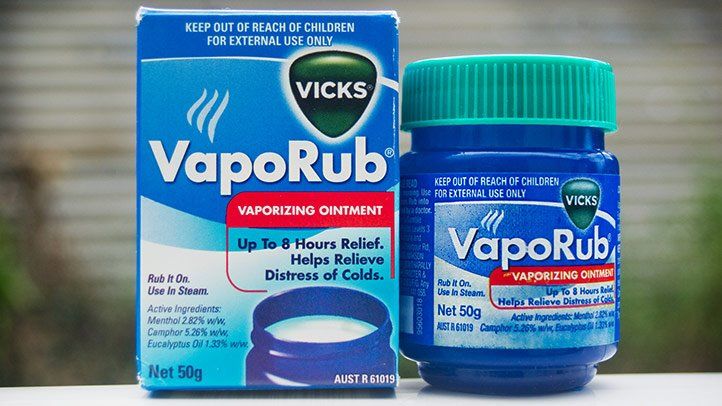Understanding the Common Cold
The common cold is a viral infection of the upper respiratory tract, primarily caused by rhinoviruses. It is one of the most widespread illnesses worldwide, with adults averaging 2-3 colds per year and children averaging 6-8 per year.
The most common symptoms of a cold include:
- Sore throat
- Nasal congestion and runny nose
- Sneezing
- Coughing
- Watery eyes
- Headache
- Mild fever
While uncomfortable, most colds resolve within 7-10 days without treatment. However, over-the-counter medications can help to manage symptoms and relieve discomfort while your body fights off the infection.
Treating Colds with Advil and NyQuil
Two popular over-the-counter treatment options for colds are Advil and NyQuil. Understanding how these medications work and the ingredients they contain can help determine which option may be best suited to help ease your symptoms.
Advil for Cold Symptom Relief
Advil contains the generic drug ibuprofen, which belongs to a class of medications called non-steroidal anti-inflammatory drugs (NSAIDs). Ibuprofen works by reducing inflammation and pain in the body.
For treating cold symptoms, Advil is best suited for helping to reduce:
- Body aches and headaches
- Sore throat pain
- Fever
The anti-inflammatory effects can help alleviate some sinus pressure and minor body aches associated with colds as well. The fever-reducing effect helps bring down mild fevers.
NyQuil for Nighttime Cold Symptom Relief
NyQuil contains a combination of the drugs acetaminophen, dextromethorphan, and doxylamine. Heres how each ingredient contributes to cold symptom relief:
- Acetaminophen Reduces fever and body aches/pains
- Dextromethorphan Cough suppressant
- Doxylamine Antihistamine for congestion and sneezing relief
This makes NyQuil helpful for targeting multiple cold symptoms including:
- Nasal congestion
- Sneezing
- Sore throat
- Cough
- Body aches
- Headache
- Fever
The nighttime formulations of NyQuil contain the additional ingredient doxylamine which is a sedating antihistamine. This can help promote sleep while also temporarily relieving symptoms.
Comparing Advil and NyQuil
When weighing options between Advil and NyQuil for treating your cold symptoms, there are some key differences to consider:
1. Single vs Multiple Ingredients
One of the biggest distinctions is that Advil only contains ibuprofen while NyQuil contains a combination of acetaminophen, dextromethorphan, and doxylamine. For some, a single ingredient is preferred to avoid interactions. However, others may favor the multi-ingredient approach to target a wider range of symptoms.
2. Duration of Action
The duration of symptom relief tends to be longer with Advil at up to 8 hours compared to 4-6 hours with regular NyQuil. However, NyQuil manufactures extended release formulations to prolong the effects up to 12 hours.
3. Side Effects
As both over-the-counter drugs, Advil and NyQuil come with possible side effects. These may include:
- Advil - Nausea, vomiting, dizziness, headache
- NyQuil - Nausea, vomiting, dizziness, headache, drowsiness
These medications can also interact with certain prescription drugs. It is always smart to read labels carefully. For Advil and NyQuil, this includes checking if formulations contain additional medicines like Sudafed.
4. Age Appropriateness
If considering for a child, the age guidelines do vary between these products.
- Advil Approved ages 12+ years
- NyQuil - Approved ages 12+ years (daytime), 18+ years (nighttime)
This relates to differences in dosing guidance as well as the sedative effect of ingredients like doxylamine in NyQuil.
The Best Treatment Approach
In most cases, Advil and NyQuil can both be effective options for common cold relief. However, some key questions to help guide the best treatment choice include:
- Is fever-reduction a priority? If so, NyQuil may work better.
- Is long-lasting congestion relief needed? NyQuil may work better.
- Are body aches the main bothersome symptom? Advil may help address this directly.
- Is sedation from antihistamines an unwanted side effect? May be better to avoid NyQuil.
- Is use by children under 12 years old needed? Advil aligns better with age guidelines.
Additionally, when used appropriately these drugs can provide stronger symptom relief when combined together. The different mechanisms of action can prove complementary. For example, adding an Advil dose to a NyQuil regimen further reduces inflammation and body aches.
Other Considerations
A few other useful tips when treating colds with over-the-counter medications:
- Carefully check labels for all active ingredients and drug interactions
- Follow all dosage recommendations based on age and weight
- Avoid combining other products containing acetaminophen while taking NyQuil to prevent exceeding maximum dose
- Stay hydrated by drinking plenty of water and other clear fluids
- Get plenty of rest to help your body heal
While making good choices about symptom relief aids recovery, the most effective cure for the common cold involves giving your immune system time to clear the underlying viral infection.
FAQs
Can I take Advil and NyQuil together?
Yes, Advil and NyQuil can be taken together. The combination of ingredients can actually provide enhanced fever, pain, cough, and congestion relief. However, make sure to carefully follow all dosage guidance and do not exceed recommended amounts.
Is nighttime or daytime NyQuil better for colds?
The "nighttime" formulas of NyQuil contain the added ingredient doxylamine which induces sleepiness. This makes nighttime NyQuil preferable if taking before bed for its sedating effects. Daytime NyQuil does not cause drowsiness but provides the same cough/congestion relief.
How long is NyQuil effective for cold symptoms?
Most NyQuil products provide 4-6 hours of relief per dose. However, they manufacture "extended release" formulations that can work for up to 12 hours for long-lasting effects.
Can I take NyQuil while pregnant or breastfeeding?
It is generally recommended to avoid NyQuil while pregnant or breastfeeding. Ingredients like doxylamine and dextromethorphan have not been safety tested. Discuss use of over-the-counter cold medicines with your doctor.
Is Advil or acetaminophen better for cold headaches?
For headache relief, Advil (ibuprofen) or the acetaminophen in NyQuil can both be effective options. Those sensitive to acetaminophen may find the anti-inflammatory properties of ibuprofen offer superior headache relief.
Disclaimer: This article is for informational purposes only and does not constitute medical advice. Always consult with a healthcare professional before starting any new treatment regimen.
Related Coverage
Chest congestion causes coughing and difficulty breathing. Try home remedies like steam, hydration, saline washes, and essential oils for fast, natural congestion relief....
Nasal mucus contains antibodies, moisturizes tissues, and traps pathogens - learn more about this slimy respiratory defense system with insights from mucus photos....
Research is mixed on whether Vicks VapoRub relieves cough, congestion, and aches from the flu. It may help temporarily when used safely in adults and children over age 2....
Discover the surprising power of an onion on your bedside table, a natural remedy that harnesses the anti-inflammatory and decongestant properties of onions to provide soothing relief from persistent coughs and respiratory ailments....
The mind-body connection reveals how our thoughts and emotions manifest physically. Learning this language of the body enables deeper self-understanding and harmony....
Soothe sinus pain and pressure with effective natural remedies like steam, salt therapy, herbs, and diet changes. Natural treatments provide safe sinusitis relief....
DayQuil can temporarily relieve a sore throat caused by a cold or flu. Its combination of pain relief, cough suppression, and decongestion provides short-term symptom relief....
Excess phlegm and mucus can be caused by allergies, infections, smoking, GERD, and other issues. A combination of home remedies and medical treatment can provide relief....
Learn about the common causes of morning nasal congestion and stuffy noses along with 17 natural remedies and medical treatment options for relief....
What does ...








